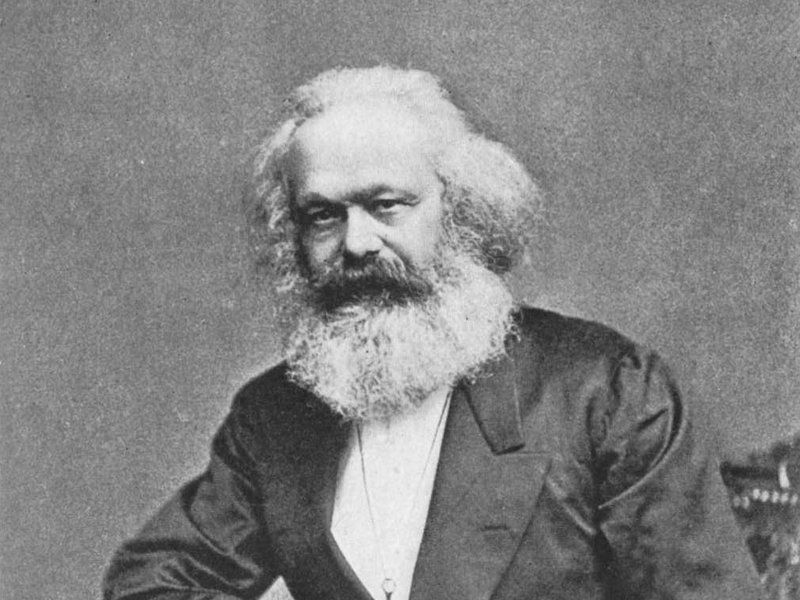Karl Marx was less a theorist of politics or economics, in my opinion, though he certainly was interested in both. But above all else, I would describe Marx as a psychologist. Approach him that way, and the pieces of his project start to cohere easier.
Marx was interested in how human beings understand themselves and those around them. And changing that understanding. He believed that changing the self-understanding of the human mind is eminently possible because he saw the mind as something malleable, almost like plastic, to be shaped and formed in new or different ways.
MIND AS MATTER
Like parts of modern psychology, Marx denied the metaphysical freedom of human mind. The mind, Marx argued, is mere matter — because the whole world consists of matter, and nothing more. The operations of the mind, therefore, or what we might call “thinking thoughts,” are mere effects of the material causes around and acting upon the mind. Change the causes, and one changes the effects. Or to state it more cynically: Manipulate the causes of thoughts, and one manipulates thoughts.
If the mind is not free, then mere matter precedes ideas. Material beings cause the mind to form “ideas” of those beings, almost impressing themselves onto the mind like a signet ring impressed in hot wax. Thus the presence of material property caused the mind to form an “idea” of property, according to Marx. And the mind quickly correlated the ideas of owning property, having property in one’s self, and therefore owning one’s self and the fruits of one’s labor.
CONCEPT OF SELF AS MAIN POLITICAL PROBLEM
This is the origin of the concept of “self,” which Marx (and Rousseau before him) saw as the root of all human problems. Eliminate the concept of “self” and one can solve the political problem once and for all. Why? Because if we can eliminate the concept of “self,” we can eliminate greed, selfishness, and all the social evils that flow from the self-centered passions. One cannot be selfish, after all, if the mind has no concept of “self.”
But how? If material reality precedes and causes all ideas, then a change in material reality changes the ideas held by the mind. Enter: The final communist revolution, in which all privately owned property is removed from the private hands that claimed ownership and is now held in common by the people, or the “commune.”
WE REPLACES I
As the presence of private property is eliminated, so too, Marx argued, the “idea” of property will dissipate. As the idea of property dissipates, the idea of self-ownership dissipates. And as the idea of self-ownership dissipates, the very idea of “self” dissipates.
Once the concept of self is gone — once there is no “I” to which a man might refer — once a man identifies himself only in terms of we — then we will witness an entirely new kind of human being: the true Communal Man. And with the appearance of Communal Man, politics as we have know it, politics as a problem caused by the conflict between the individual and the group, will exist no longer. The self will be gone. The group, and group consciousness, is all that will remain.

